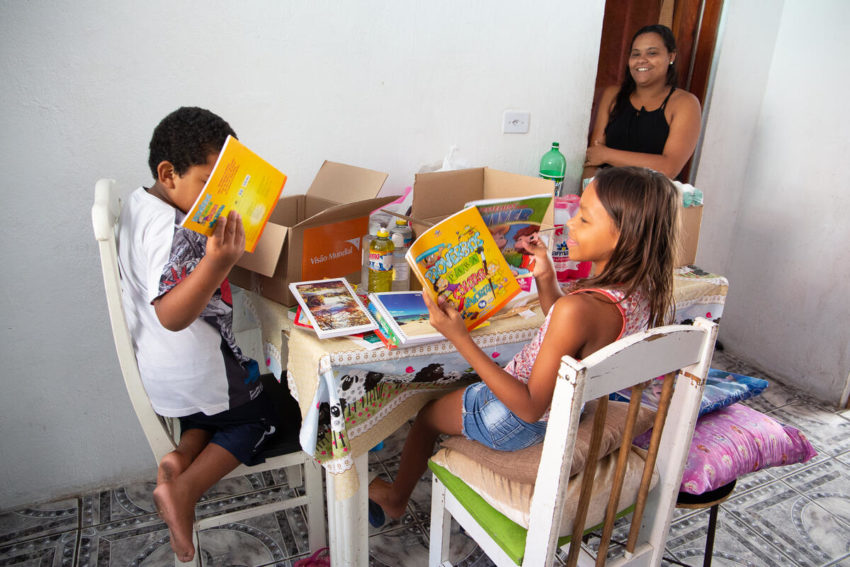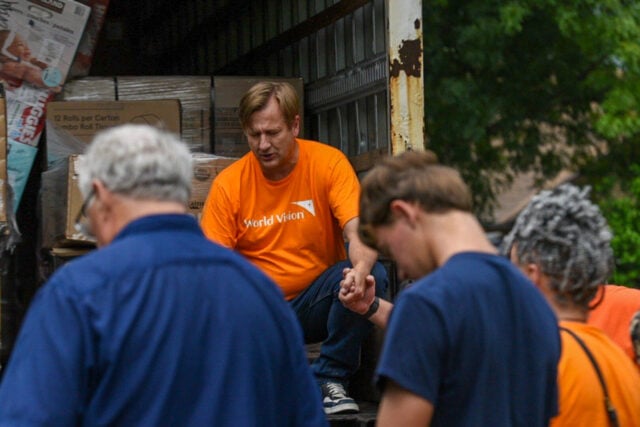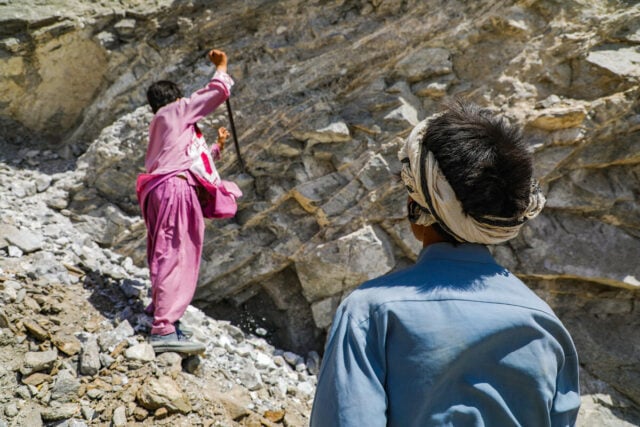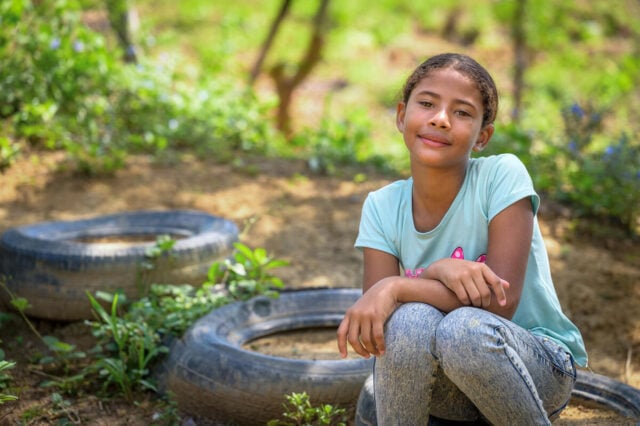World Vision has always worked to improve the health and welfare of the children we serve. Our experience responding to disease outbreaks includes the HIV and AIDS crisis in Africa in the early 2000s, post-earthquake cholera in Haiti, the Zika virus in Latin America, and Ebola in West Africa and the Democratic Republic of the Congo. We’ve learned the painful truth that infectious diseases like COVID-19 put children at risk, even when they don’t get ill themselves. That’s why supporting children impacted by the secondary effects of the pandemic is one of the four key objectives of our coronavirus response.
As the coronavirus has spread worldwide, children and families are facing new challenges: scarce food, limited healthcare, and lost opportunities for education and income. When caregivers lose their livelihoods or lives to disease and community development is set back, children are put at greater risk of neglect, abuse, or exploitation such as child labor or child marriage. And if children and families live in refugee camps, conflict zones, or other fragile contexts, they are even more vulnerable.
“Children in Uganda are all affected,” says World Vision staff member Joanitah Asiimire. “They’re out of schools … and at home and at a risk of violence. Ugandan children face more violence while at home than anywhere else. Our child protection facilitators are not able to check on them because of the situation.”
Mongolia staff have created a board game based on positive parenting techniques that help children and parents communicate better during the stress of being confined at home. In Brazil, World Vision and its partners support families by packing and distributing “tenderness boxes” filled with food, hygiene items, and children’s art supplies. Abigail Bayucan, a staff member in the Philippines, reaches out by phone and social media to the families and community groups she used to meet with almost every day. While she worries about them, she has hope because they “are the same people I have been working with to implement programs for the well-being of children.”
To help protect children in sponsorship programs from the secondary effects of the pandemic, World Vision quickly pivoted, allocating up to 20% of sponsorship funds in each country to support our COVID-19 response where needed within that country. This is World Vision’s first truly global disaster response, and addressing COVID-19 has become the top priority for every one of our 37,000 staff.
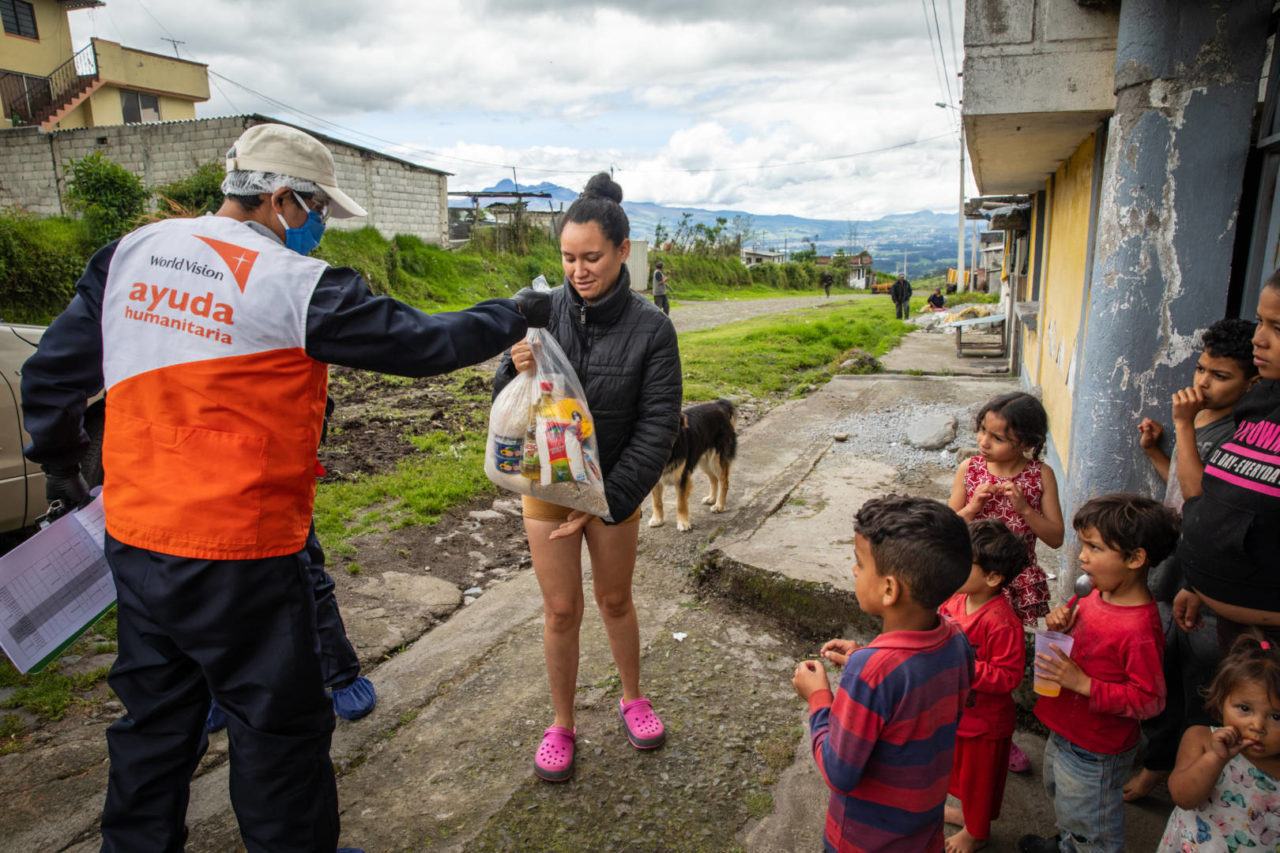
Global coronavirus response
When street vending is your livelihood, staying at home means no access to customers and, thus, no income. Kassandra Zambrano, 27, lives in Quito, Ecuador, with her husband and six children. During quarantine, it’s been difficult to afford food because her husband, who is the family’s sole provider, cannot go out to sell clothing.
It’s been more than a year since the family came to Ecuador from Venezuela, and with borders now closed, going back is not an option. Kassandra can’t find a job or daycare for her children, so the family is grateful for food provided by World Vision, including cooking oil, lentils, rice, salt, tuna, pasta, and flour, as well as a storybook and notebook for the children.
“I’m relieved,” she says.
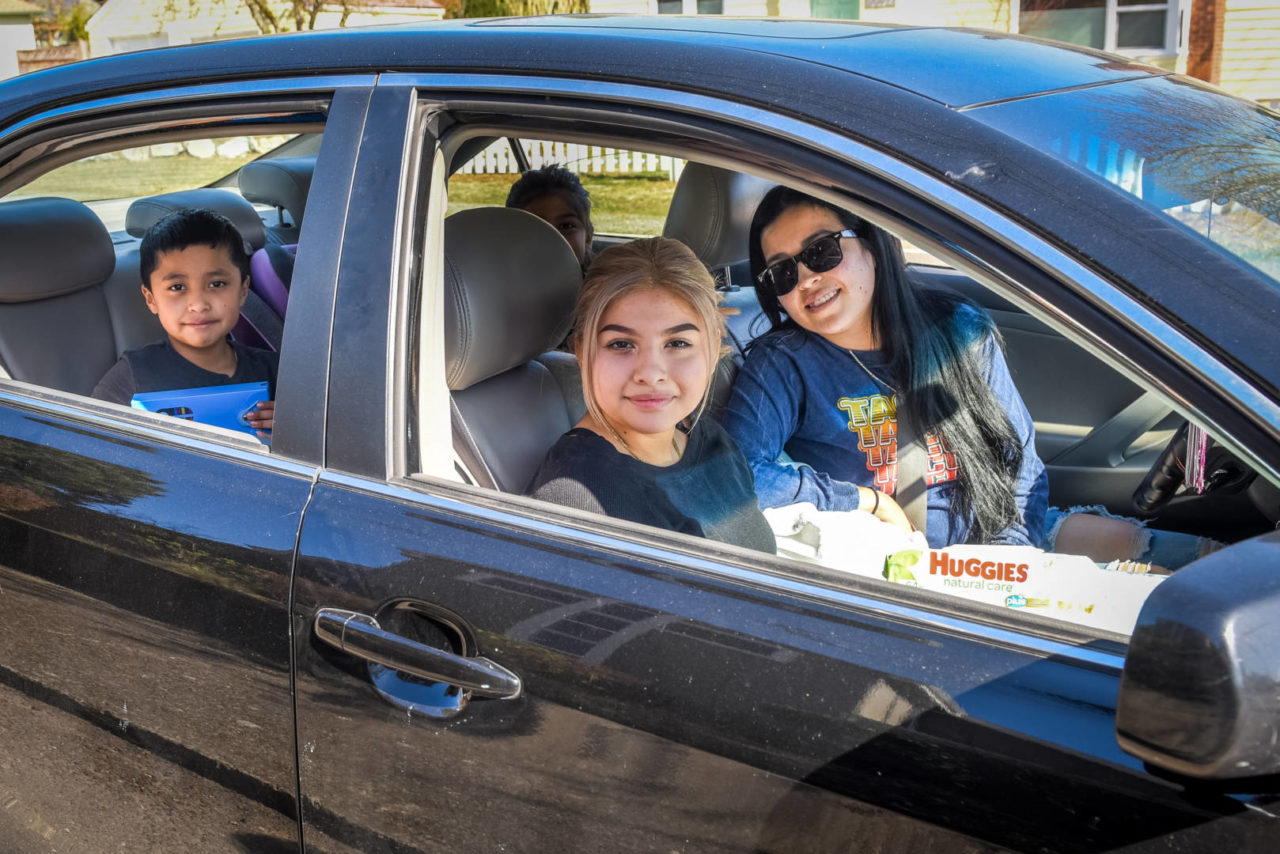
U.S. coronavirus response
From coast to coast, mothers raising kids on their own say they’ve been facing even fewer options as they navigate coronavirus closures, layoffs, and other disruptions.
“It’s such a hard time, and then to lose your job on top of that …” says Edna Salinas, a 26-year-old mother of a 1-year-old and 5-year-old. She lost her dental assistant position in late March. Without income, the Washington state mom worried where their next meal would come from. She received a Family Emergency Kit through a distribution at Lake Burien Presbyterian Church. “I don’t know what I would have done without the relief packages,” she says.
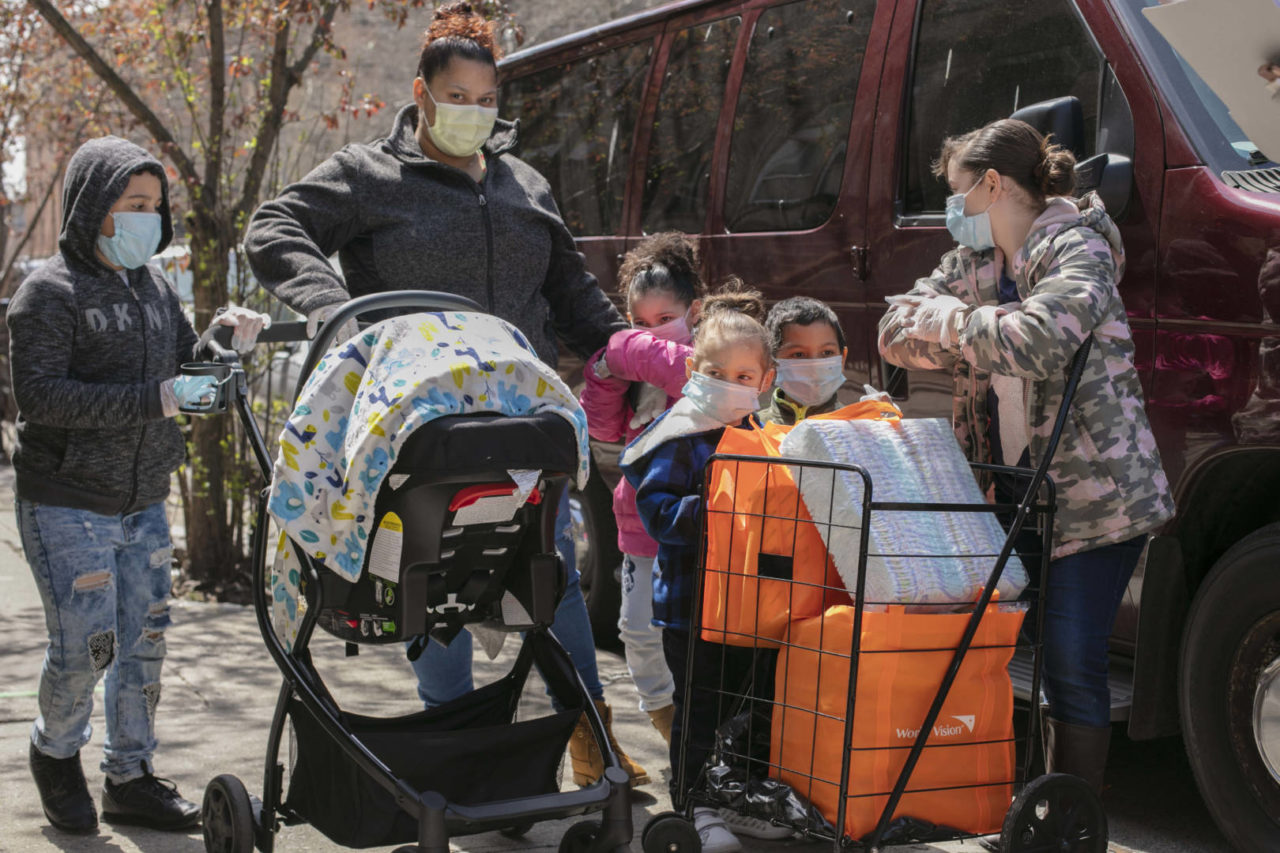
In the Bronx, New York, 33-year-old Carmen LeBron’s baby needed milk, and her five older children needed food. She would dash to a nearby market to pick up essentials, only to encounter bare shelves that sent her scrambling.
“Stores are empty. Everything is shut down. You can’t describe the feeling of not being able to find milk for your baby,” says Carmen, who described the World Vision–sponsored donation through the Evangelical Church Disciples of Christ as a “blessing and beautiful expression of generosity.”
For the last seven years, Carmen has passed the church building on her daily outings. “Once the church doors open, I’ll be going in. The church has helped me in this great time of need.”
Kari Costanza, Chris Huber, Sevil Omer, Lauren Reed, Kathryn Reid, and Laura Reinhardt of World Vision’s U.S. staff contributed to this story.
